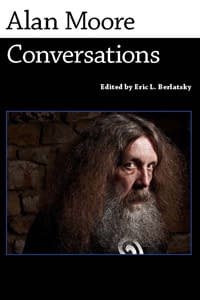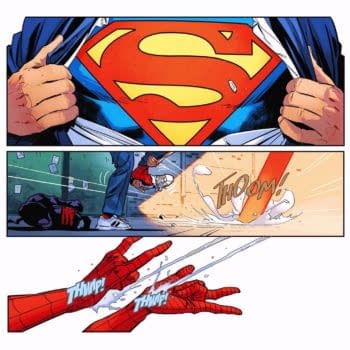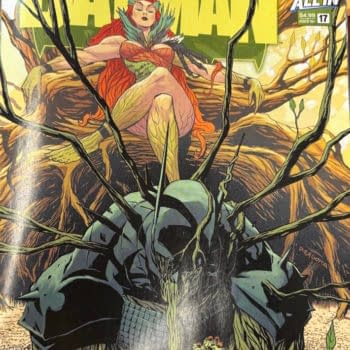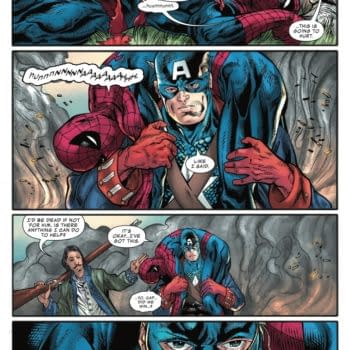Posted in: Comics, Recent Updates | Tagged: Alan Moore, Comics
Greg Baldino On The Changing Alan Moore
"I'd like to see an adult comic that didn't predominately feature huge tits, spilled intestines, or the sort of brain-damaged, acid-casualty gibbering that Heavy Metal is so fond of." 1981
No artist worth his or her salt can remain the same throughout their life without stagnating. The work of a creative life changes a person, and the life of a creative person changes their work. By examining a well-documented artist it's possible to not only learn greater truths about them individually, but also about the creative process; and possibly about life itself.
"[Writing] is something that will take over your life. Surrender. Surrender to it right from word one. Don't fight. It's bigger than you are." 2002

"[Nietzsche]'s the origin of the superman concept, and it's a fascist ideal. I mean, humans to a superman would stink. They'd be uncoordinated. Every move Marvelman makes is pure poetry." 1984
The book features ten interviews spanning three decades of Moore's career, starting with the first published interview with him, conducted by future collaborator David Lloyd in 1981. The most recent interview was conducted in 2009 in the pages of British humor magazine Mustard, just as League of Extraordinary Gentlemen Century 1910 was coming out. Between those, much of his career is explored, from the murky muck of Swamp Thing to the erotic exegesis of Lost Girls.
"Watchmen was kind of clever. I was going through one of my clever periods–probably emotional insecurity. I thought: "People will laugh at me 'cos I'm doing superhero comics. I'd better make 'em really clever, then no-one will laugh." [laughter]." 2002
With the exception of some of the earlier pieces, much of these interviews were conducted outside the comics press. The result is a selection that approaches his work from a less typical point of view, exploring his work and process from an artistic perspective rather than a comics-centric one.
"If you think there's a huge amount of difference between [an artist] and Joseph Goebbels, you're kidding yourself. Any form of art is propaganda." 2002
What is most fascinating, reading through the book chronologically, is to see what changes, and what stays the same. Over the course of three decades, Moore's views on comics, art, writing, and publishing change and shift. The Alan Moore of the eighties and the Alan Moore of the 2000s could have a wonderfully engaging argument about their art, broken up by the pair of them ganging up on the Alan Moore of the nineties.
"A sex scene is a way of getting over very important character information, just as much as a fight scene it, and the reader really shouldn't be looking at it as, 'Oh, this is purely thrown in for titillation.'" 2004
Conversations is a fascinating read, not only for fans of Alan Moore's prolific work, but for those interested in the shifting medium of comics since the decade when they suddenly found themselves in the spotlight with their underpants on the outside.
"DC have been very nice with me; they're not changing anything." 1983
Alan Moore: Conversations is 240 pages, available in paperback and ebook formats for $25, and as a printed casebound edition for $65 from University Press of Mississippi.
"My experience of life is that it is not divided into genres. It's a horrifying, romantic, tragic, comical, science-fiction cowboy detective novel … with a bit of pornography if you're lucky. "
Greg Baldino lives and writes in Chicago. He's presented lectures on comics before several college classes and received a CSPA award for his 2009 interview with Audrey Niffenegger. Just now, he realized that he stole the bit about the Alan Moores of various eras fighting from an issue of Tom Strong.















